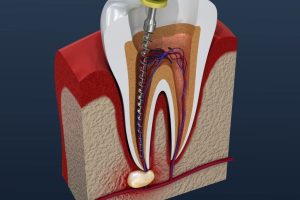How to Beat Depression and Anxiety
Did you know that more than 6 million people in the United States alone suffer from anxiety and that anxiety is one of the most common mental disorders in the country? Depression is also very common and it often coincides with anxiety in many people.
If you suffer from either of these conditions, you know that they can be hard to deal with, to the point that figuring out how to beat depression and anxiety might seem like an impossible task. However, there are actually many different things you can try to improve your emotional stability and mental health. Your options can range from visiting a professional therapist to changing the way you think about certain things.
First, let’s take a quick look at the anxiety and depression symptoms and how you can decrease their intensity.
The Symptoms of Depression and Anxiety
Even though depression and anxiety have very different symptoms, they can often occur together, resulting in unbearable swings in mood. Depression may be described as deep sadness, but it is often more than being sad once in a while. Depression is more of a feeling of disinterest and misery that remains persistent for months or even years.
People with depression can’t simply snap out of their mood and decide to feel better if they feel like it. Because of this, depression can be very debilitating, especially when it comes to enjoying daily life. This is because people with depression often cannot enjoy the hobbies or pastimes they once enjoyed.
Many people with depression can’t seem to find joy in anything they do or anything around them. This is linked with the apathy many people feel. They may feel like nothing matters and have no motivation to do anything.
This can interfere with work and school. In severe cases, people with depression may even consider suicide. Anxiety, in contrast, can represent itself in a very different way.
Everyone experiences some anxiety once in a while, but an anxiety disorder, much like depression, is much more persistent. An anxiety disorder can also cause panic attacks which can include acute feelings of terror and feeling out of control. Anxiety disorders can also be debilitating to daily life as they can interfere with your ability to work and form relationships.
Living with one or both of these conditions can be emotionally and physically draining, so what treatment options are there? Luckily, there are many options you can choose from and you don’t have to immediately try medication if you don’t want to.
Try Setting Goals and Making Plans for Yourself
Many people who suffer from depression and anxiety often feel like they are in a rut that they can’t get out of. This can lead to spending hours in bed without doing anything due to a lack of motivation. However, by creating motivation for yourself, you can start to overcome the feelings of indifference and lack of motivation.
Starting small is always important. Some people who have depression may find it difficult to take a shower or eat breakfast. By setting these goals for yourself and accomplishing these goals, as small as they may seem, you can make progress against your mental conditions.
Your goals should be realistic and attainable. Setting lofty and unattainable goals, of course, can worsen your lack of motivation. By completing goals, you can gain more confidence and start to believe that you have worth.
Your goals should also not stress you out too much. This can be a struggle if you have anxiety. However, you should also not make your goals too easy.
For example, if you have social anxiety, try to force yourself to say hello to someone every day. While this may create stress, it likely won’t create the same debilitating stress associated with giving a group presentation. By starting small, you can see where your limits stand, and then you can eventually move on to bigger goals.
Improve Your Relationships
It can be hard to think positively if you are surrounded by people who bring you down. For example, if you find something like a movie or an event exciting but your friends don’t, this can be a painful blow to your mood.
While you don’t necessarily need to drop all your friends in favor of your mental health, seeking out new and more positive friends can make a big difference. Spending time with people that enjoy the same things as you is a great mood-booster.
Spending time alone is also important, but be careful not to shut yourself away for too long.
Improve Your Lifestyle
Improving your lifestyle can be a great way to get yourself out of any rut. You might be surprised at how different you could feel just by changing your daily routine. For example, try ditching processed foods in favor of more flavorful and nutritious foods.
You could also try supplements such as CBD. CBD products, like these capsules, may be able to help stabilize mood imbalances associated with depression and anxiety.
Talking with a therapist if you aren’t already is also a great option. Talking with a therapist will help you to understand what you feel when it comes to depression and anxiety. If your anxiety or depression worsens, your therapist can always recommend certain medications that might help you.
For some, medication can be that extra boost needed to get out of bed and appreciate the little things in life.
How to Beat Depression and Anxiety
By the end of this article, you should know all about how to beat depression and anxiety. While these conditions can be hard to deal with, there are always treatment options available.
If you’re interested in learning more, don’t hesitate to explore the health section on our website.







